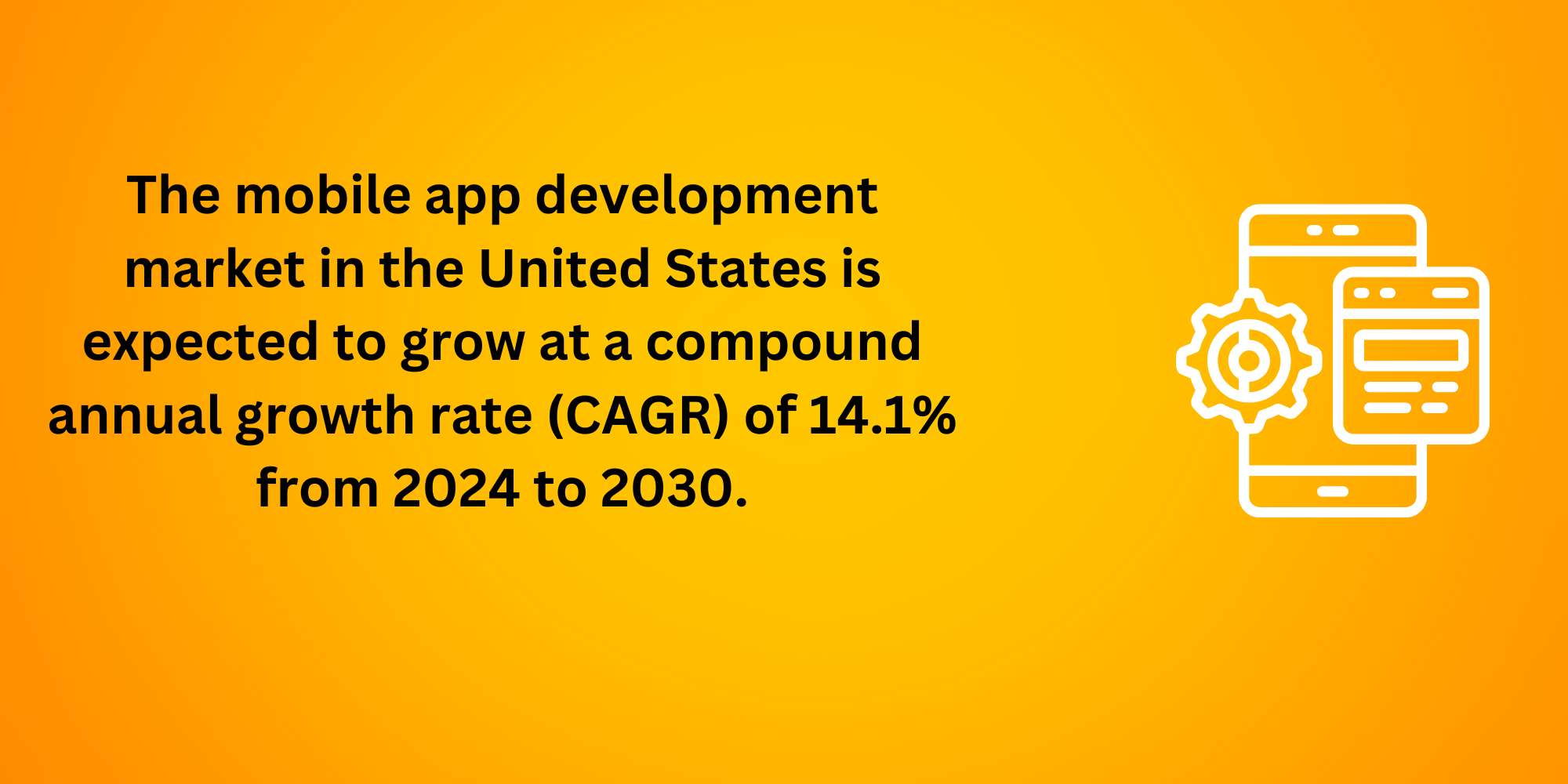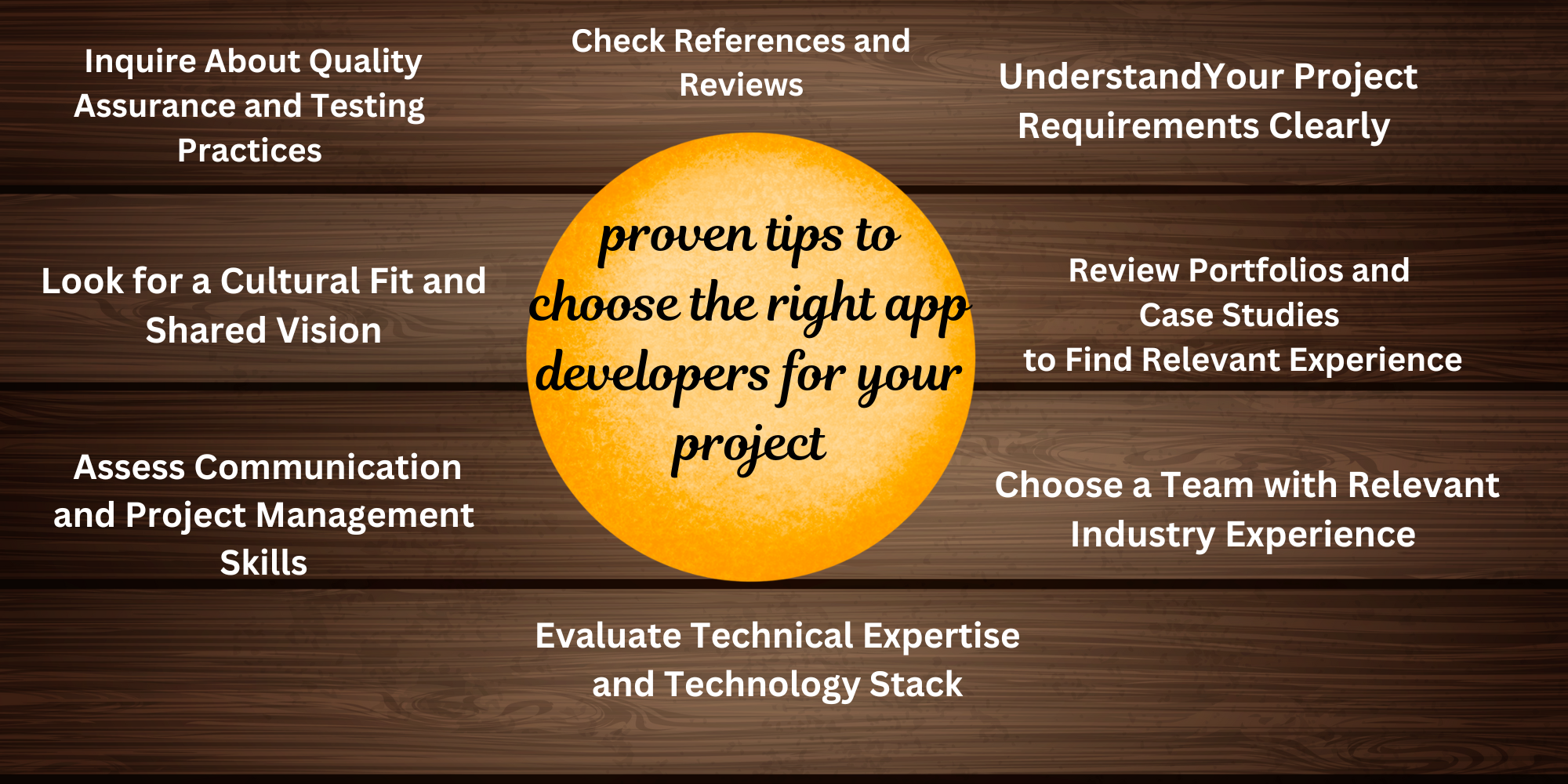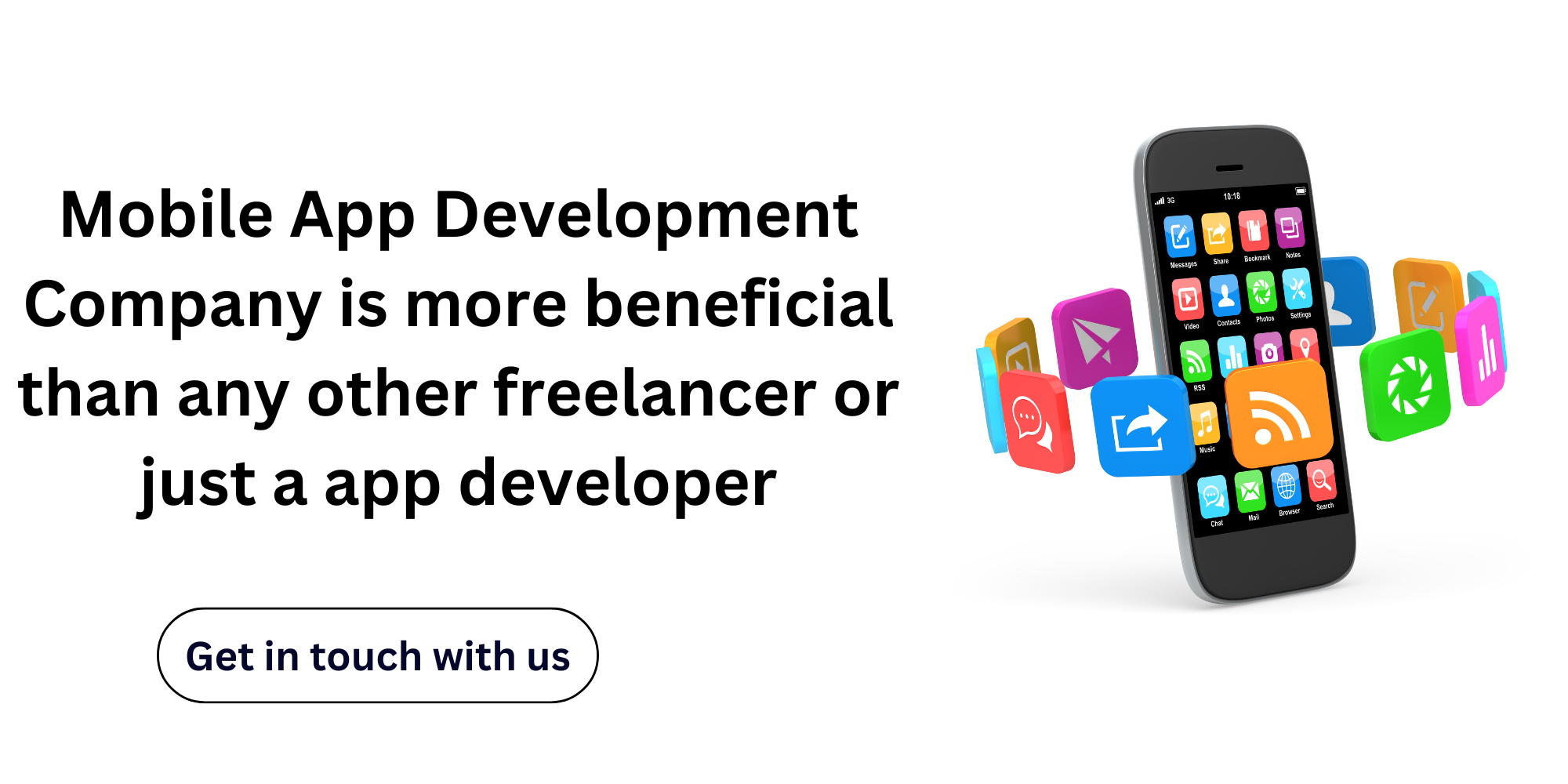
INTRODUCTION
In today’s digital-first world, mobile applications are more than just tools—they are gateways to customer engagement, revenue generation, and brand loyalty. Whether you’re a startup looking to launch your first app or an established business aiming to expand your digital footprint, partnering with the right app developers for your project can be crucial to bringing your vision to life. A well-executed app can differentiate your brand, but a poorly developed one can lead to wasted resources and reputational damage.
However, with countless developers, freelancers, and development companies in the market, choosing the right partner can feel overwhelming. How do you ensure they have the right skills, experience, and understanding of your vision? This guide is designed to provide you with insights, practical tips, and proven strategies to help you select the perfect app development team for your project. Choosing the right app developers will help to transform your business.
Mobile apps have become vital for SMBs and enterprises. According to Statista, 2.1 million apps are available for Android users and 1.8 million for iOS users. This rapid growth is due to the continuous innovation in the mobile industry over the past decade.
Here are some statistics about mobile app consumption in the United States in 2024:

Here are some other projections for the mobile app development market:
- Market size: -The market is projected to grow from $94.4 billion in 2024 to $399.8 billion by 2032, with a CAGR of 22.9%.
- App downloads: -The app download market is expected to grow at a CAGR of 13.4% between 2022 and 2030, reaching an estimated value of $565.40 billion by 2030.
- Revenue: Mobile apps are expected to generate over $935 billion in revenue in 2024.
- Consumers spend: – The total value of consumers spent on mobile apps in the second quarter of 2024 was 35.34 billion U.S. dollars, which is a 5% increase from the same quarter in 2023.
- App downloads: Mobile app downloads have increased by 7% in recent years.
- App usage: The average smartphone owner uses 10 apps per day and 30 apps each month.
- App categories: The average person spends about 2 hours and 51 minutes per day on mobile apps, with a growing preference for social media, communication, and gaming.
- App store availability: The Apple App Store has 1.96 million apps available for download, and the Google Play Store has 2.87 million apps available for download.
- Smartphone usage: Smartphone usage is predicted to grow up to 4.74 billion at the end of 2024, which is an estimated 2.2 percent increase annually.

- The projected total revenue in the App market for the United States is set to reach US$137.50bn by 2022.
- This forecasted estimate takes into account the expected annual growth rate (CAGR 2022-2027) of 10.06%.
- As a result, the projected market volume is anticipated to reach US$230.40bn by 2027.
- Looking specifically at in-app purchase (IAP) revenue in the App market, it is projected to amount to US$37.33bn in 2022.
- Additionally, paid app revenue is expected to reach US$0.70bn in the same year.
- Furthermore, advertising revenue in the App market is projected to reach US$99.52bn in 2022.
- In terms of the number of downloads in the App market, it is projected to reach 14.54bn downloads in 2022.
- Currently, the average revenue per download is expected to be US$9.46.
- When comparing global figures, it is worth noting that China generates the most revenue in the App market, with a projected amount of US$162.90bn in 2022.

Here are some of the proven tips for choosing the right app developers for your project
1.Understand Your Project Requirements Clearly
Before reaching out to right app developers or companies, it’s essential to have a detailed outline of your project. This means identifying:
- App Purpose: What problem will the app solve? Who is your target audience? For example, a fitness app for beginners might prioritize simple, guided workouts.
- Core Features: Make a list of the app’s must-have features. Will it need a login screen, push notifications, payment options, or location tracking?
- Budget and Timeline: Decide on a preliminary budget and deadline. Knowing how much you’re willing to invest and your timeline helps developers provide accurate quotes and timelines.
Why This Matters: Defining requirements allows you to find developers who have the specific skills you need and helps avoid misunderstandings later. The more information you provide upfront, the better potential partners can align with your vision and goals.
“Before beginning any project, having a clear vision of what you want to achieve is essential. At [Appoctet Technologies], we help clients define their project goals by discussing the app’s purpose, desired features, target audience, budget, and timeline. We know this is critical to a successful development process. By aligning with your business goals from the start, we ensure that every feature and design element serves your objectives and delivers a meaningful experience for your users.”
2. Review Portfolios and Case Studies to Find right app developers with Relevant Experience
A portfolio is a developer’s resume. It shows past projects and gives insight into their skills and creativity. When reviewing portfolios:
- Projects Similar to Yours: Look for experience with apps that have features or industries similar to your project. For example, if you want an e-commerce app, a developer with shopping cart or payment integration experience is a good fit.
- User Interface (UI) and User Experience (UX): Review the visual appeal and ease of use of their apps. Does the app look modern and professional? Is it easy to navigate?
- User Feedback: For live apps, check app store reviews to see what users say. Positive feedback indicates a quality product, while consistent complaints might be a red flag.
Why This Matters: Examining portfolios helps you gauge the developer’s strengths and how they tackle different projects. Seeing past work similar to yours provides confidence that they can handle your specific needs.
“We believe our work speaks for itself. Our portfolio showcases a variety of apps across industries, from e-commerce to healthcare to social platforms. When you review our past projects, you’ll see not only our design expertise but also our dedication to creating user-friendly, high-performance apps that meet business needs. We’re happy to walk you through specific case studies that demonstrate our problem-solving skills and our ability to meet client goals.” Here are our case studies that you can go through https://www.appoctet.com/#case-study
3. Choose a Team with Relevant Industry Experience
Industry-specific experience can save time and prevent costly mistakes. For example:
- E-commerce Apps: These require knowledge of payment processing and secure transactions.
- Healthcare Apps: Developers should be familiar with HIPAA or GDPR for secure handling of sensitive data.
- Social or Gaming Apps: Apps with complex interactions, animations, or multiplayer capabilities require specialized expertise.
Why This Matters: Developers who have built similar apps are familiar with industry challenges and best practices. They’ll know what works and can anticipate issues before they arise, creating a smoother development process.
“Every industry has unique requirements, whether it’s ensuring HIPAA compliance in healthcare apps or optimizing for high traffic in e-commerce. Our team includes specialists with deep experience in a variety of industries, so we understand the regulations, standards, and technical needs that come with each one. We match your project with developers who are already familiar with the specific challenges of your industry.”
4. Evaluate Technical Expertise and Technology Stack
Technical knowledge is the backbone of any successful app. Look for developers who are skilled in:
- Technology Stack: Developers should be proficient in your chosen platform (iOS, Android) and frameworks (e.g., Flutter, React Native) to ensure quality performance and functionality.
- Backend Development: Apps with user accounts or payment systems need secure and scalable server-side development.
- Problem-Solving Skills: Ask developers about challenges they’ve overcome on past projects. Their answers show how they tackle unexpected issues.
Why This Matters: App developers need the right technical skills to build a secure, responsive, and scalable app. Assessing their skills ensures they can bring your vision to life and handle any technical obstacles that may arise.
“At [Appoctet Technologies], we pride ourselves on being at the cutting edge of app development technology. We have developers who specialize in iOS, Android, and cross-platform frameworks like Flutter and React Native. We’re proficient in the latest backend technologies as well, ensuring that your app is secure, scalable, and efficient. Our team is also ready to integrate new technologies like AI and blockchain if they fit your project’s needs.”
5. Assess Communication and Project Management Skills is essential for choosing the right app developers
Good communication is critical to keeping your project on track. Look for developers who:
- Provide Regular Updates: A professional developer will set up regular check-ins or reports to keep you updated on progress and address any questions.
- Use Project Management Tools: Tools like Trello or Asana help track project milestones, deadlines, and tasks, keeping everyone on the same page.
- Value Transparency: Honest, transparent communication is key. Developers should openly discuss potential delays or challenges.
Why This Matters: A development process with clear communication helps prevent misunderstandings, missed deadlines, and frustration. Project management tools make it easier to stay informed and track progress, especially for complex projects.
“Effective communication is key to any successful project. We assign a dedicated project manager to every client, who provides regular updates, ensures milestones are met, and acts as your main point of contact. Using tools like JIRA and Trello, we keep the project organized and transparent, so you always know the status and next steps.”
6. Check References and Reviews
References offer a first-hand look at a developer’s work ethic and reliability. You can reach out to previous clients and ask questions about:
- Overall Experience: Were they satisfied with the development process and the final app?
- Timeliness: Did the developer or company meet deadlines?
- Post-Launch Support: Was the developer available to fix bugs or offer updates after the app launched?
Why This Matters: Feedback from past clients provides valuable insight into how the developer manages deadlines, communicates, and handles post-launch support. Positive references add credibility and reassurance that you’re making a solid choice.
Choosing the right app developers is a big decision, so we’re happy to provide references and showcase testimonials from our past clients. Platforms like Clutch and Good Firms feature reviews of our services, offering a third-party view of our reliability and client satisfaction. Our clients appreciate our collaborative approach, technical expertise, and commitment to post-launch support.” Let’s dive into our website: –https://www.appoctet.com/
7. Inquire About Quality Assurance and Testing Practices
Quality assurance (QA) and testing prevent user frustration and ensure the app works as intended. Look for developers who:
- Have Dedicated QA Processes: Testing across different devices and operating systems ensures a smooth user experience.
- Use Both Automated and Manual Testing: Automated testing quickly identifies issues, while manual testing catches details that automation might miss.
- Offer Beta Testing: Beta testing gathers real-world feedback before launch, allowing for last-minute improvements.
Why This Matters: Thorough QA and testing help deliver a polished, user-friendly app and reduce post-launch issues. Developers who prioritize testing ensure that your app performs well across various devices and conditions.
“Quality assurance (QA) is integral to our development process. Our dedicated QA team rigorously tests every app across various devices and operating systems. We use automated and manual testing to ensure your app performs well and is free from critical bugs. Additionally, we offer beta testing to gather user feedback before full launch, allowing us to make any last-minute adjustments.”
8. Look for Post-Launch Support and Maintenance Options
A successful app needs ongoing maintenance to stay compatible and secure. Ask developers about:
- Maintenance Plans: Do they offer packages for post-launch support? What’s included?
- Costs: How much will it cost for bug fixes, updates, or new features?
- Future Scalability: Ensure they can support future app updates or feature additions as your business grows.
Why This Matters: Apps need regular maintenance to keep up with new devices, OS updates, and evolving user needs. Having a reliable support plan reduces the stress of managing these changes and keeps your app running smoothly over time.
“Our partnership doesn’t end when your app is launched. We offer post-launch support packages to keep your app running smoothly. This includes bug fixes, updates for new OS releases, and even adding new features as your business grows. Our team is here to ensure that your app stays current and continues to meet user needs.” We can be the right app developers for your company.
9. Understand Pricing Structure and Request a Detailed Proposal
“Transparency is one of our core values. We provide a detailed proposal outlining all costs, so you understand exactly where your investment is going. We offer flexible payment models to suit your budget, including milestone-based payments, so you can see the progress as you invest in each stage. Our proposals also include timelines with key milestones and expected completion dates.”
10. Look for a Cultural Fit and Shared Vision
“We believe that true partnerships lead to the best outcomes. Our team values open communication, transparency, and innovation. We’re not just here to develop your app – we’re invested in your success and want to bring your vision to life. If we see areas where your app could be improved or where new features could add value, we’ll let you know.”

Why mobile app development company is more beneficial than any other freelancer or just an app developer
Choosing a mobile app development company over a solo freelancer or individual app developer has many advantages, especially if your project is complex, large-scale, or has tight deadlines.
While hiring a freelancer may be cost-effective for simple projects, a mobile app development company is the better choice for more complex or large-scale projects. With their specialized teams, robust infrastructure, advanced tools, and end-to-end services, companies provide a level of reliability, scalability, and expertise that a solo developer or freelancer typically cannot match. For businesses that want a high-quality app with long-term support and industry insights, investing in a mobile app development company offers the best chance for success.
1.Team-Based Expertise and Specialized Skills
A mobile app development company brings together a team of experts, each specializing in a different aspect of app development, such as:
- UI/UX Designers for intuitive and appealing designs.
- Frontend and Backend Developers for a strong technical foundation.
- Quality Assurance (QA) Engineers to ensure the app runs smoothly and is bug-free.
- Project Managers to oversee the development process, ensuring timely communication and delivery.
With a diverse team, companies can cover every aspect of the app development process in-house, which typically leads to a better product than a single freelancer could achieve.
2. Higher Reliability and Accountability
Mobile app development companies have a reputation and brand image to maintain, making them more accountable and reliable. They follow structured processes, often provide written contracts, and assign dedicated project managers who ensure projects stay on track. This accountability often translates into better communication, consistent progress updates, and clear timelines, giving you peace of mind that the project is in good hands.
Freelancers, on the other hand, may juggle multiple projects, making it harder for them to meet deadlines or provide consistent updates.
3.Enhanced Security and Compliance
For apps dealing with sensitive data, security and compliance are critical. Development companies often have established security protocols and can ensure that your app meets industry standards and regulations, such as GDPR, HIPAA, or PCI compliance. This expertise is especially important for apps in sectors like finance or healthcare, where strict security is a necessity.
Freelancers may not have the same level of experience with data security or regulatory compliance, which could leave your app vulnerable to security issues.
4.Business and Market Insights
App development companies typically work with a wide range of clients across various industries, giving them valuable market insights. They can provide strategic guidance on app design, user experience, monetization options, and competitive analysis to make your app stand out in the market. This business-oriented perspective can help you make smarter decisions and maximize your app’s potential for success.
Freelancers may not have the same level of industry experience or the resources to provide these insights.
5. Faster Development with Parallel Processes
With multiple experts working on different parts of your app simultaneously, companies can often deliver your project faster than a solo developer could. For example, designers and developers can work in tandem, while the QA team tests modules as they’re completed. This parallel processing shortens the overall timeline, allowing you to launch your app sooner.
Freelancers, however skilled, can only work on one task at a time, which can lead to delays.
- A mobile app development company is the better choice for more complex or large-scale projects. With their specialized teams, robust infrastructure, advanced tools, and end-to-end services, companies provide a level of reliability, scalability, and expertise that a solo developer or freelancer typically cannot match.
- For businesses that want a high-quality app with long-term support and industry insights, investing in a mobile app development company offers the best chance for success.
FAQ’s
1. How long does it typically take to develop a mobile app?
The time required to develop an app depends on its complexity, features, and design requirements. A basic app may take around 3–4 months to develop, while a more complex app with advanced functionalities can take 6–12 months or longer. We’ll provide you with a project timeline after discussing your requirements.
2. What should I look for in an app developer’s portfolio?
When reviewing portfolios, look for:
- Relevant Experience: Has the developer built similar apps before?
- Design Quality: Does the app look polished and user-friendly?
- Functionality: Check if the apps have features similar to what you need.
- User Feedback: If the app is live, read reviews to see how users responded.
A strong portfolio shows the developer’s ability to deliver high-quality apps and provides insight into their design and technical capabilities.
3. How do I determine if a developer has the right technical expertise?
Ask about their experience with your target platform (iOS, Android, or cross-platform) and the technology stack they use (Swift, Kotlin, Flutter, React Native, etc.). Inquire about their familiarity with backend development, database management, and any other technical requirements specific to your app, such as AI, AR/VR, or secure payment integration.
CONCLUSION
Choosing the right app developers involves evaluating portfolios, verifying technical skills, and ensuring there’s a cultural fit. By asking the right questions and understanding the selection process, you’ll find a partner who not only understands your vision but has the expertise to bring it to life successfully.